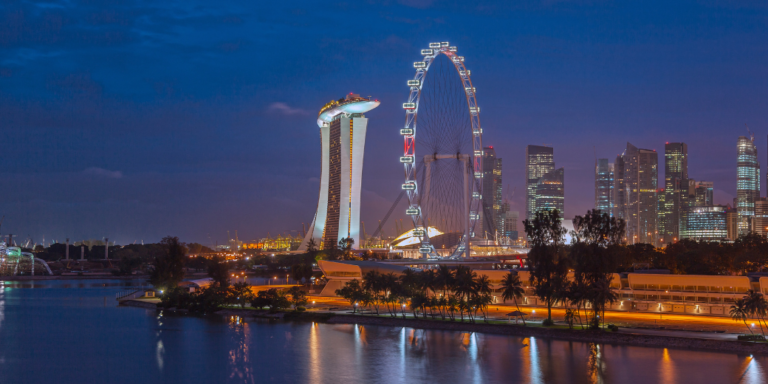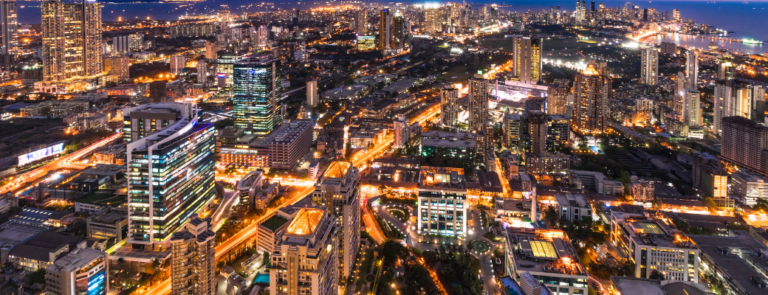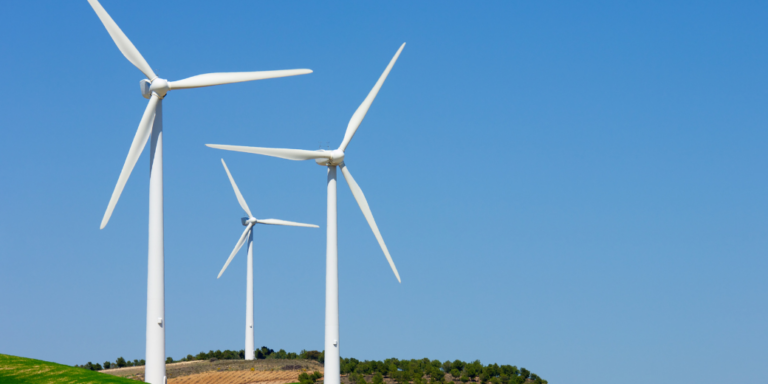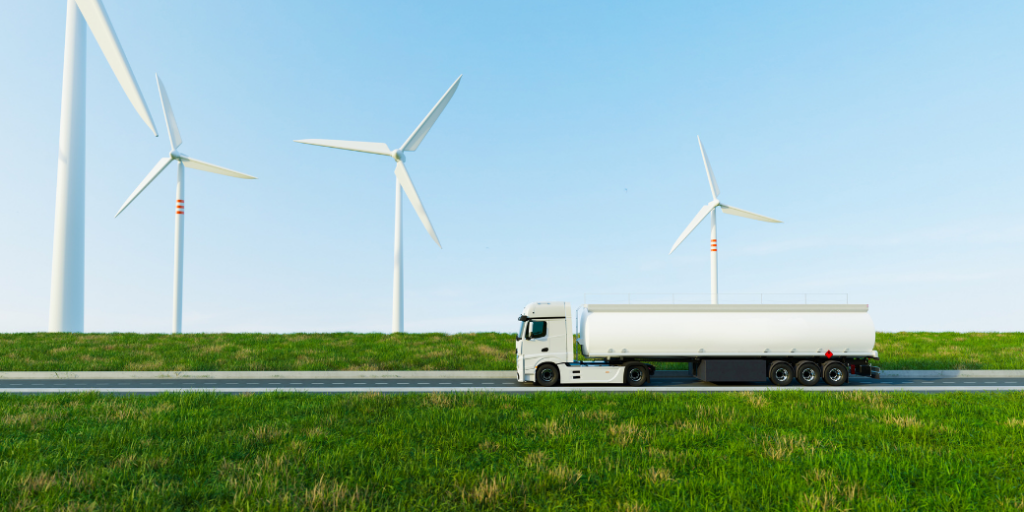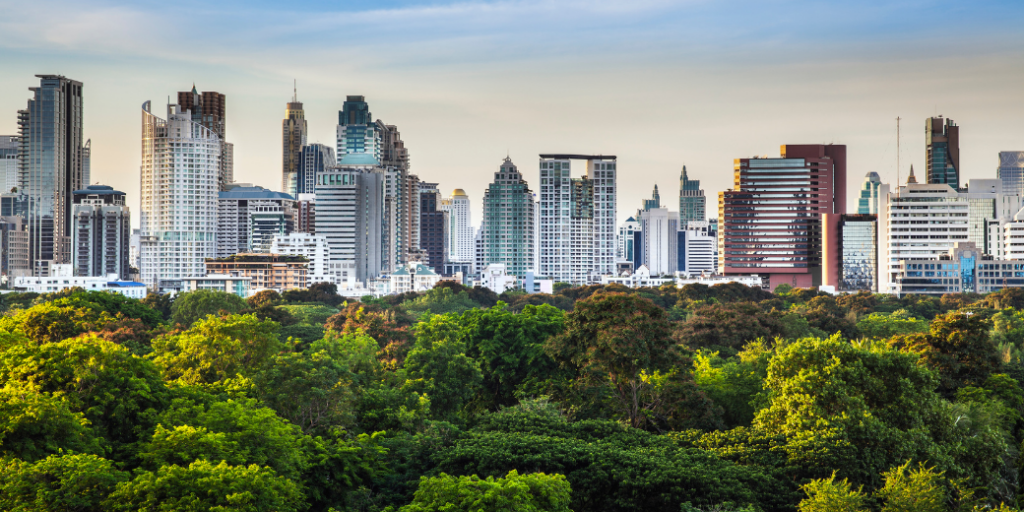Báo cáo Xu hướng
Green Initiatives (SDG) in Malaysia: A Holistic Perspective
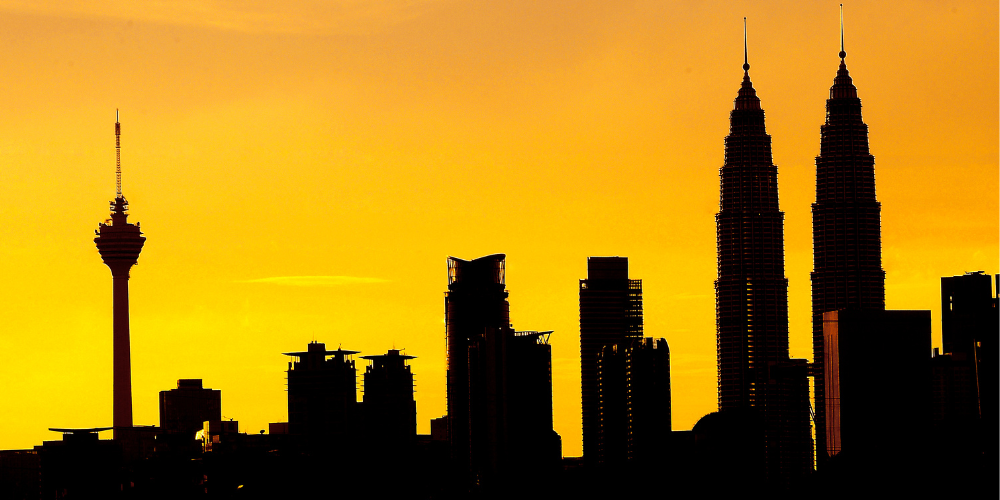
Summary
Renowned for its lush rainforests, diverse ecosystems, and vibrant cultural landscape, Malaysia has been actively pursuing Sustainable Development Goals (SDGs) to safeguard its natural heritage. This article delves into the various green initiatives underway throughout the country, highlighting their multifaceted roles in promoting sustainable development and bridging the nexus between environmental conservation, social equity, and economic growth.
Environmental Landscape in Malaysia
Fuelling the Future: Malaysia’s Natural Gas Reserves and Global Influence
Malaysia’s prominence in the global energy market is underscored by its substantial reserves of natural gas, estimated at approximately 42 trillion cubic feet (Tcf) as of 2017. These reserves, predominantly situated in offshore fields within the South China Sea and the Strait of Malacca, benefit from strategic geographical positioning, facilitating efficient extraction and utilisation processes.
Natural gas is a cornerstone of Malaysia’s energy landscape, fulfilling crucial roles in industrial and domestic sectors. Industrially, it powers diverse operations, from electricity generation in power plants to various manufacturing and production processes, owing to its efficient combustion properties and relatively lower environmental impact. This reliance on natural gas significantly contributes to Malaysia’s industrial output and economic growth.
Furthermore, Malaysia boasts a robust liquefied natural gas (LNG) industry, supported by advanced liquefaction technologies that facilitate the conversion of natural gas into liquefied form for transportation and export. This infrastructure comprises state-of-the-art facilities, including liquefaction plants and storage terminals strategically positioned nationwide.
The presence of these well-established LNG terminals grants Malaysia access to a wide array of international markets, spanning continents and catering to diverse energy demands worldwide. This extensive reach not only bolsters the nation’s export revenue but also elevates its geopolitical stature as a reliable energy supplier on the global stage. Beyond its economic impact, Malaysia’s LNG exports are multifaceted in driving domestic development. The revenue generated contributes to economic growth, supports infrastructural development initiatives, and facilitates various socio-economic programs within the nation.
Petroleum
Petroleum production in Malaysia is a fundamental pillar of the nation’s economy, with offshore rigs tirelessly extracting crude oil from beneath the seabed, thereby substantially bolstering its revenue streams. Predominantly under state control, the Malaysian petrochemical industry capitalises on abundant hydrocarbon feedstock and robust petrochemical zones, facilitating the production of essential materials such as medical equipment, electronics, and plastics. Supported by a resilient infrastructure comprising refining and cracking facilities, utilities, and logistics services, Malaysia’s petrochemical sector stands poised for expansion, as outlined in the Chemical Industry Roadmap 2030.
Helmed by Petronas Chemicals Group and several foreign entities, the industry operates under the regulatory purview of the Ministry of Domestic Trade and Consumer Affairs and the Ministry of Investment, Trade, and Investment. Despite facing periodic fluctuations in feedstock prices attributable to geopolitical unrest, Malaysia retains its stature as a significant exporter, notably to China, with methanol emerging as a key export commodity. With a roster of over 100 contributing companies accounting for 6% of the nation’s GDP, the industry assumes a pivotal role in bolstering various sectors, including electronics, automotive, and pharmaceuticals. This growth is propelled by unfettered access to hydrocarbon resources and favourable production metrics, thus positioning Malaysia as a key player within the ASEAN region.
Palm Oil
Malaysia has solidified its position as a dominant force in the palm oil sector, emerging as one of the globe’s leading exporters. In 2020, its contribution was substantial, representing 25.8% of the world’s palm oil production and 34.3% of global exports. This achievement can be credited to Malaysia’s advantageous tropical climate and fertile soil, which create ideal conditions for the cultivation of oil palm trees.
Furthermore, Malaysia has firmly established itself as a key player in the global oleochemicals and derivatives market, driven by its extensive palm oil resources, which constitute the primary feedstock for oleochemical production. With approximately 20% of global oleochemical capacity in 2022, Malaysia is a net exporter of oleochemicals and derivatives, notably tripling its import value, with China being a key export market.
The industry’s success is attributed to integrated operations from palm oil cultivation to derivative production, with key products including fatty acids, fatty alcohols, methyl esters, and glycerine. This sector, crucial to Malaysia’s economy, provides substantial employment opportunities and has strategically expanded into major export markets, ensuring resilience even amid global demand fluctuations.
Renewable Energy
Renewable energy constitutes approximately 20% of Malaysia’s total electricity generation, with hydropower emerging as the predominant contributor, accounting for roughly 89% of renewable energy output. Despite Malaysia boasting significant solar potential, hydropower continues to dominate, particularly in Sarawak, owing to substantial rainfall and abundant water resources. Nevertheless, there is an anticipation that solar power will propel future expansions in renewable energy capacity.
State-owned entities like Sarawak Energy spearhead renewable energy generation, making substantial investments in the sector. Malaysia aims to harness its renewable energy capabilities to establish itself as a regional powerhouse, albeit facing challenges posed by high reserve margins. The recent lifting of the ban on renewable energy exports could present opportunities for Malaysia to capitalise on the escalating demand within the ASEAN region, potentially mitigating excess capacity domestically.
Green Initiatives in Malaysia
Development Plans and Priorities: Insights into Malaysia’s 12th Malaysia Plan (RMKe-12)
The Economic Planning Unit (EPU) of Malaysia, established in 1961 as the Economic Secretariat of the Economic Committee under the Executive Council of the then Federation of Malaysia, is the focal point for Sustainable Development (SD) initiatives, including the Sustainable Development Goals (SDGs). Its primary role is to prepare development plans, ensuring a strategic and coordinated approach to economic and social progress. Collaborating with various ministries, agencies, and stakeholders, the EPU formulates and implements national development policies, conducting economic analyses and recommending measures for inclusive growth, poverty reduction, and environmental sustainability.
Central to its function is drafting Malaysia’s development plans, such as the 12th Malaysia Plan (RMKe-12) covering 2021 to 2025, which emphasises unity, inclusivity, and collective progress under the banner of “Keluarga Malaysia.” The RMKe-12 prioritises economic growth through sectors like digital economy and green technology, while ensuring inclusivity, environmental sustainability, digital transformation, human capital development, and infrastructure improvements. With its role in data collection and analysis, the EPU provides valuable insights for evidence-based decision-making and policy formulation, contributing to Malaysia’s long-term prosperity and resilience.
Greening the Economy: Budget 2023 Green Initiatives
The Malaysian Green Technology & Climate Change Corporation (MGTC) has presented Budget 2023 as a steadfast strategy to propel Malaysia toward its goal of achieving carbon neutrality by 2050. This budget incorporates a spectrum of incentives and initiatives to foster sustainability and stimulate green growth across diverse sectors.
Green Investment Incentives: Green Investment Tax Allowance (GITA) and Green Income Tax Exemption (GITE)
The Green Investment Tax Allowance (GITA) and Green Income Tax Exemption (GITE) incentives are critical drivers in encouraging the adoption of sustainable practices within the business community. Notably, in Budget 2023, the application period for both GITA and GITE has been extended until December 31, 2025. Furthermore, the incentive periods have been elongated from three to five years. GITA incentivises investments in green technologies, while GITE offers tax exemptions on income generated from such endeavours. This extension aims to afford businesses greater certainty and support for their sustainability endeavours over an extended period.
Allocation of Funds: Promoting Low-Carbon Practices
The Bank Negara Malaysia (BNM) has allocated RM2 billion in loans explicitly earmarked for small and medium-sized enterprises (SMEs). These funds are intended to facilitate SMEs’ adoption of low-carbon practices, thereby contributing to the establishment of a more sustainable economy. By providing financial support for SMEs to invest in low-carbon technologies and practices, Budget 2023 endeavours to effect significant reductions in carbon emissions while nurturing innovation and competitiveness within the SME sector.
Supporting Sustainability: Environmentally Friendly Projects
Budget 2023 accentuates the importance of supporting environmentally friendly projects aligned with environmental objectives. Through prioritising initiatives that mitigate ecological impact and promote sustainability, Malaysia aims to chart a course towards a greener and more resilient future. By means of targeted funding and support mechanisms, the government seeks to incentivise the development and implementation of environmentally friendly projects spanning various industries, encompassing endeavours from renewable energy infrastructure to sustainable urban planning initiatives.
Promoting Green Growth: Green Technology Master Plan
Recognising its wealth of natural resources, Malaysia strives to harmonise development with environmental responsibility. The Green Technology Master Plan (GTMP)[5], launched in 2017 and extending until 2030, is a strategic framework aimed at advancing sustainable development while combatting environmental degradation. Its core objectives include optimising natural resource utilisation, reducing the country’s carbon footprint, and advocating for eco-friendly practices across various sectors.
Aligned with global efforts to combat climate change, the GTMP sets ambitious targets for reducing greenhouse gas (GHG) emissions, with a particular emphasis on fostering a low-carbon and resource-efficient economy. Malaysia aims to achieve a significant reduction in GHG emission intensity relative to GDP, targeting up to a 45% decrease by 2030 compared to 2005 levels. Central to the plan is promoting green growth, encouraging the adoption of sustainable economic practices and cultivating a culture of environmental stewardship.
To achieve these goals, the GTMP outlines a range of strategic initiatives, including the promotion of renewable energy sources, improvement of energy efficiency, adoption of eco-friendly manufacturing processes, enhancement of public transportation infrastructure, implementation of green building practices, optimisation of waste management systems, and conservation of water resources.
The GTMP anticipates delivering substantial socio-economic and environmental benefits, building on previous successes that have seen increased utilisation of renewable energy, production of resource-efficient products, public transportation infrastructure enhancements, and waste and water management practices.
Investing in Tomorrow: Petronas’ Efforts in Sabah
Petronas Chemicals Group, the Malaysian state-owned oil and gas company, has actively promoted green energy initiatives and bolstered educational opportunities in Sabah, Malaysia.
Sabah Gas Masterplan
Petronas collaborated with the Sabah State Government in January 2022 to unveil the Sabah Gas Masterplan. This strategic blueprint serves as a guiding framework for the optimal exploitation and utilisation of natural gas resources within the state. By leveraging this master plan, Petronas and the Sabah government aim to maximise the potential of this valuable resource, thereby enhancing economic growth and energy security in the region.
Collaboration in Upstream with Sabah State
In February 2023, Petronas solidified its collaboration with SMJ Sdn Bhd (SMJSB), a company wholly owned by the Sabah State Government, by signing a Heads of Agreement (HOA). This agreement delineates the framework for SMJSB’s potential acquisition of a 50% participation interest in the Samarang Production Sharing Contract (PSC). The Samarang field, located approximately 50 km offshore Sabah, is a crucial asset in oil and gas production, yielding approximately 36,000 barrels of oil equivalent per day (boe/d). Notably, the gas extracted from this field is distributed to consumers in Kota Kinabalu and Labuan, underscoring the significance of this collaboration in strengthening regional energy infrastructure.
Human Capital Development and Research Grants
Petronas has demonstrated a steadfast commitment to human capital development and research initiatives in Sabah. In February 2024, Petronas achieved a significant milestone by awarding grants worth RM5.75 million to support various research endeavours and forging new agreements to augment human capital development. These initiatives are designed to bolster the region’s technological capabilities and promote sustainable growth, underscoring Petronas’ enduring dedication to the socio-economic advancement of Sabah.
Trade Relations: Economic Interdependence between Malaysia and the European Union (EU)
Positioned as a regional hub in Southeast Asia, Malaysia plays a pivotal role in facilitating collaboration between the EU and the broader region. Leveraging its strategic geographical location and robust infrastructure, Malaysia serves as a conduit for initiatives to promote sustainable practices and address critical environmental challenges. These efforts include facilitating technology transfer initiatives geared towards energy transition and bolstering water security, not only within the region but also extending beyond its borders.
Trade and investment form the bedrock of the relationship between Malaysia and the EU. Notably, Malaysia stands as the EU’s second-largest trade partner within Southeast Asia, while reciprocally, the EU ranks as Malaysia’s third-largest trading partner. The trade figures from 2020 vividly illustrate the magnitude of this economic interdependence, with substantial imports and exports exchanged between the two entities.
A significant milestone in the EU-Malaysia partnership materialised with the signing of the EU-Malaysia Partnership and Cooperation Agreement (PCA) in Brussels on December 14, 2022. This comprehensive accord signifies a deepening of collaboration across various areas, ranging from trade and investment to sustainable development, security, defence, and human rights. By formalising this agreement, Malaysia and the EU reaffirm their commitment to fostering deeper ties and cooperation across various sectors.
The Roundtable on Sustainable Palm Oil (RSPO): Consumer Preferences and the Demand for Certified Palm Oil
Palm oil has often been scrutinised due to its association with deforestation and habitat loss. Despite these concerns, Malaysia has been proactive in promoting sustainable practices within the industry. Initiatives like the Roundtable on Sustainable Palm Oil (RSPO) have been pivotal in advocating for responsible cultivation, biodiversity conservation, and community welfare.
Established in 2004, the RSPO was formed to promote sustainable practices across the palm oil sector by setting global standards and fostering inclusive governance. Operating across the supply chain, the RSPO facilitates collaboration among stakeholders to develop and implement sustainable solutions. Through these initiatives, the RSPO aims to transform palm oil production into a positive force for the environment and affected communities.
The RSPO boasts a diverse membership base, currently comprising 5,650 members from 94 countries. Members include palm oil producers, environmental advocacy groups, and manufacturers utilising palm oil in their products. This broad representation underscores RSPO’s commitment to inclusivity and ensures that all relevant voices are heard in the pursuit of sustainability goals.
Central to the RSPO’s efforts is its certification program, which awards the Certified Sustainable Palm Oil (CSPO) label to products meeting stringent sustainability criteria. While certification offers tangible benefits for both the environment and producers, challenges persist, notably low market demand for certified palm oil. Despite growers’ efforts to meet RSPO standards and absorb certification costs, consumer preferences and market dynamics have impeded the widespread adoption of certified palm oil.
Charting a Greener Path: Malaysia’s Commitment to Sustainable Growth and Global Goal
Malaysia’s trajectory involves balancing economic growth with environmental stewardship. As the nation diversifies its energy sources, invests in research, and aligns with the United Nations’ Sustainable Development Goals, it charts a promising course. The future hinges on innovation, collaboration, and a commitment to leaving a greener legacy.
Subscribe to SPEEDA, an all-encompassing company and industry data platform tailored to the Asian market. Designed to provide timely and invaluable insights, SPEEDA draws from an extensive pool of both private and public company data alongside industry analyses, with a particular emphasis on detailed private data. With a repository of over 3,000 exclusive reports curated by regional experts, SPEEDA offers in-depth perspectives on market dynamics, supply chains, key stakeholders, and regulatory frameworks spanning various industries. It stands as a comprehensive database that analysts utilize to gather essential information necessary for their valuation activities.
By incorporating SPEEDA into your strategic toolkit, you can unlock the potential of your merger or acquisition endeavours by leveraging industry data to investigate deals and uncover opportunities. This versatile tool offers a nuanced perspective, enabling you to discern vulnerabilities and opportunities within your ventures, among other applications. Armed with SPEEDA, you gain a comprehensive and well-informed approach to decision-making, thereby bolstering the effectiveness of your business strategies.



